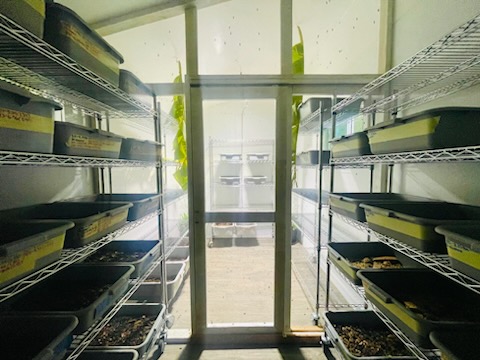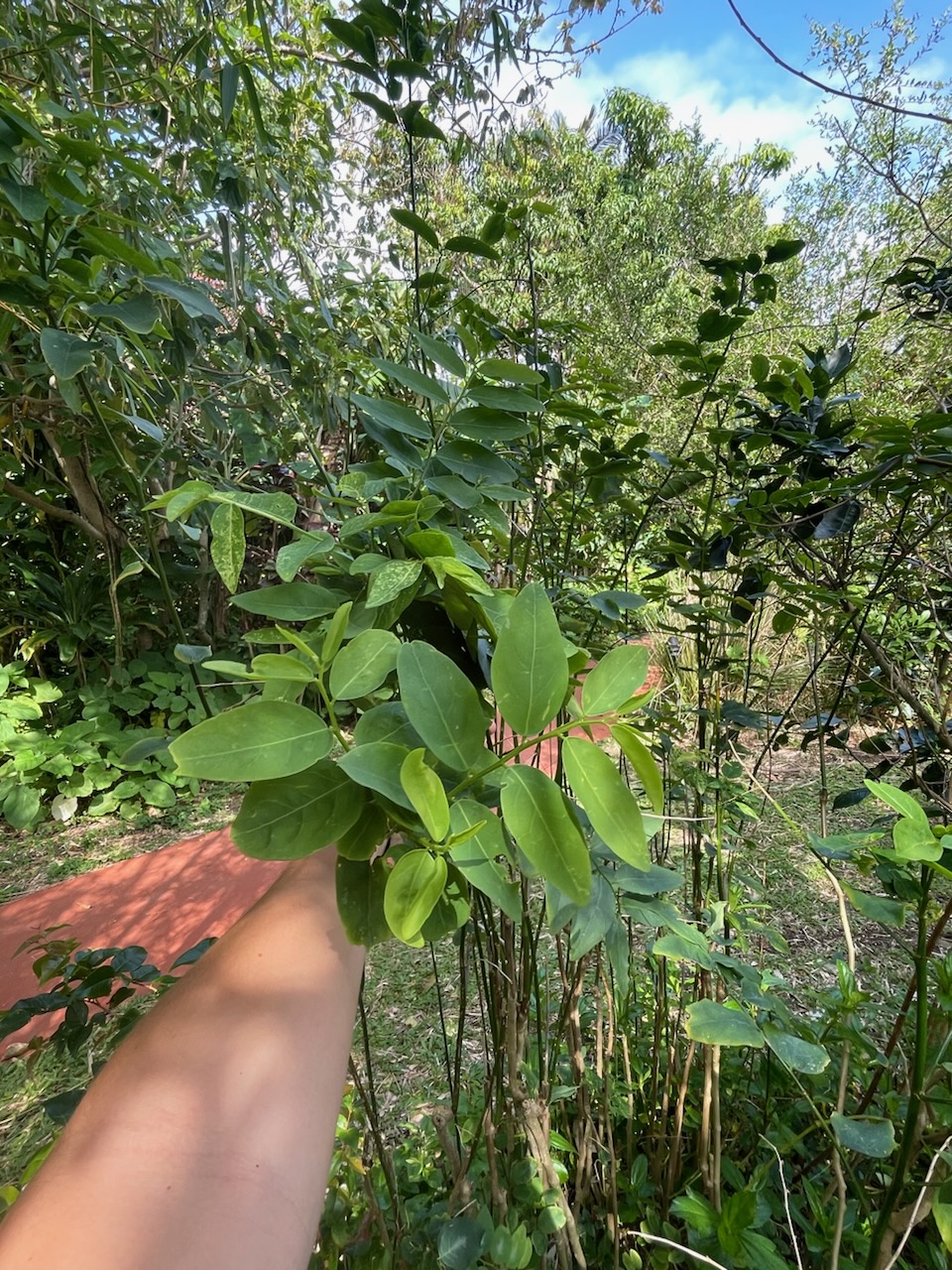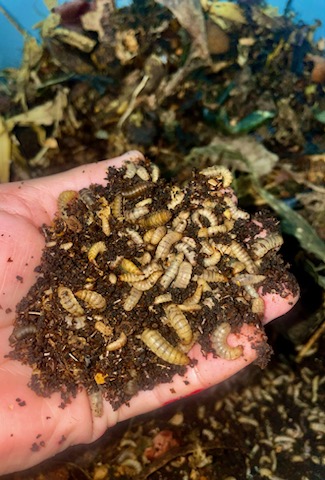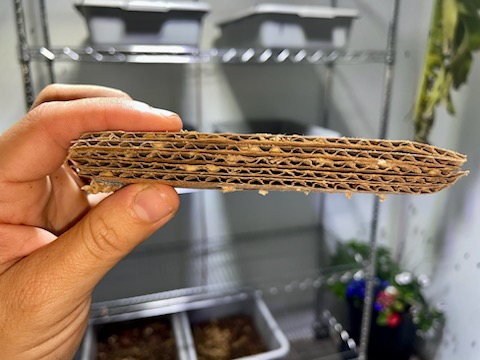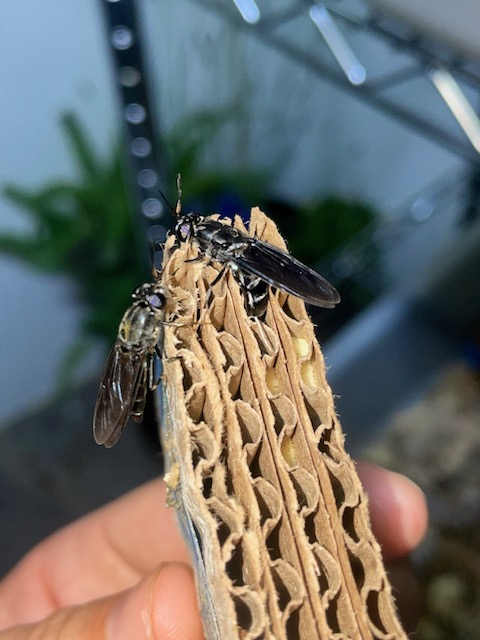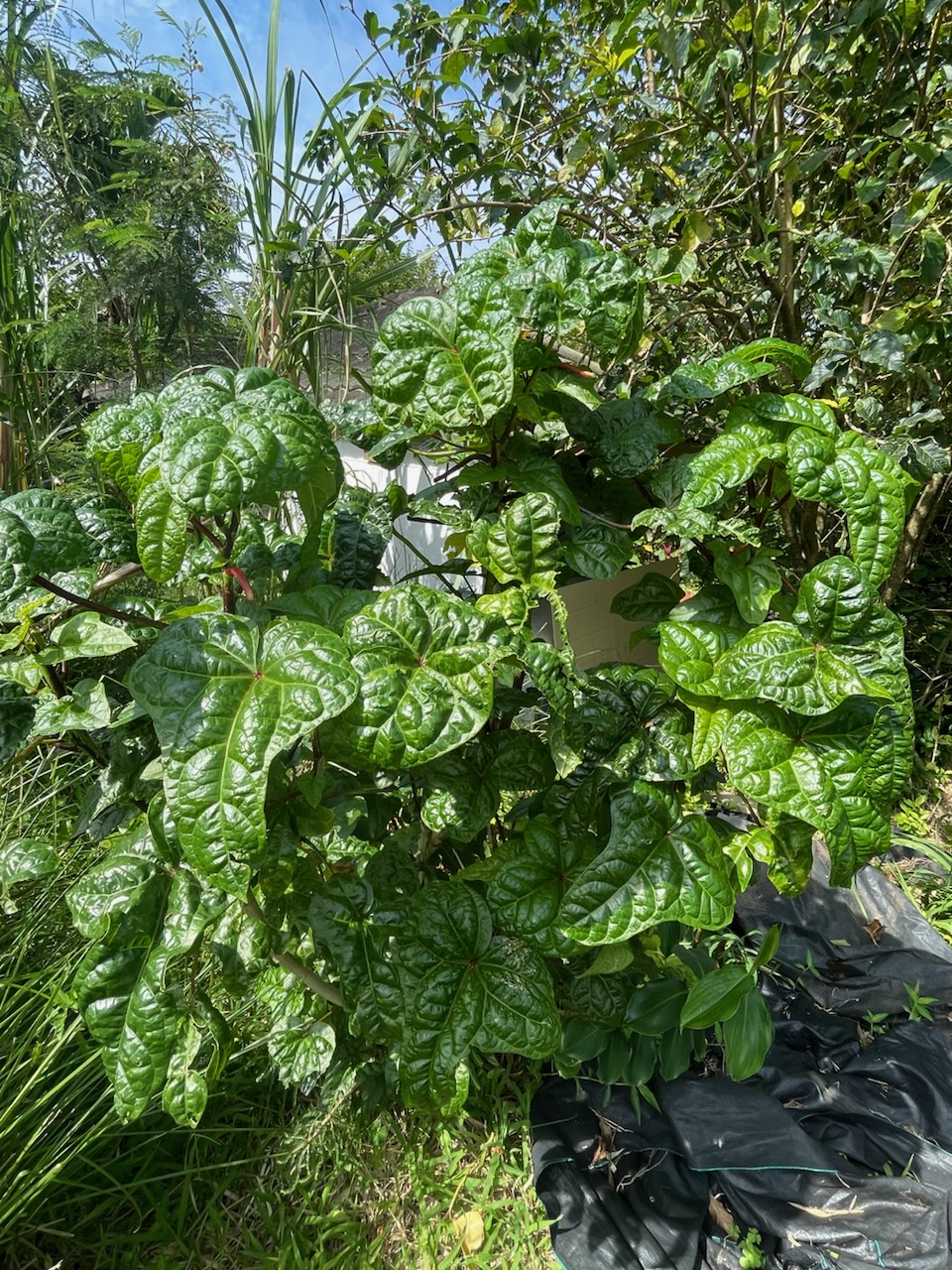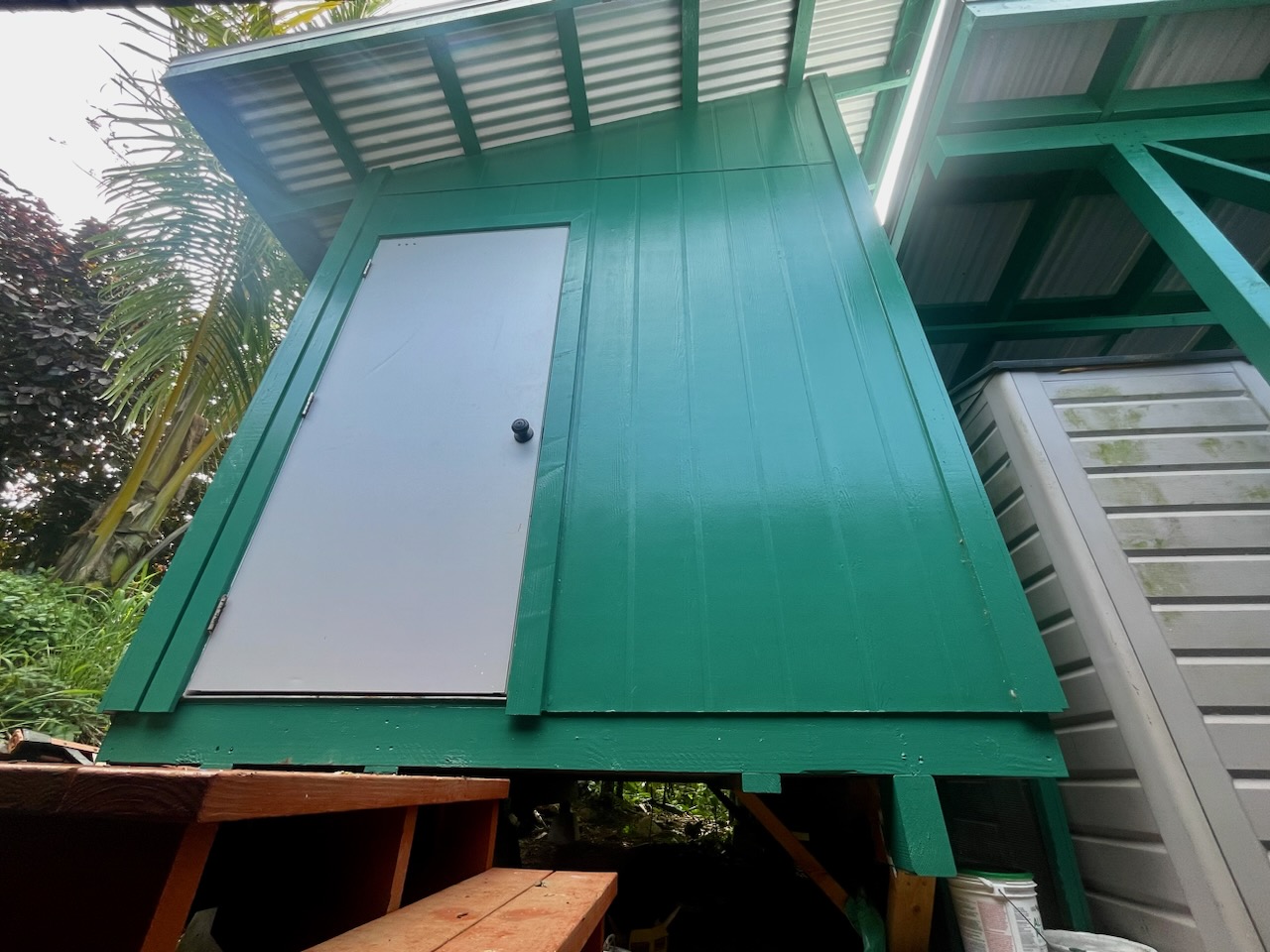About Sunrise Center Farm
Sunrise Center Farm Research and Eco-education Center is located in Haiku, Maui. We are doing some major research here! First, we are exploring raising high-protein food on the island like moringa, duckweed, and Hawaiian hibiscus with over 40% protein for all of the chickens, ducks, fish, and goats we have here. Our goal is to grow healthy, organic pesticide and herbicide-free food for them and potentially for people so that we will not have to depend on large agricultural corporations sending food to the islands by ship and plane.
In Maui, food security and sustainability is a major problem. Most of the food, like eggs or chickens or food for animals, is flown in from California. 80% to 90% of food for both people and animals is shipped to Maui by plane and freighter. Visitors to Maui and local residents spend one and a half billion dollars per year getting people and animal food shipped over to Maui. It is predicted that if a disaster were to occur like a huge hurricane and the airport was flooded or docks torn up by high winds, starvation might begin to happen by day 6. This is because Maui gets 6,441 tourists per day and they stay an average of 8.1 days (These figures are from the Maui Tourist Board). Unfortunately with global warming and climate change, bigger more frequent storms and hurricanes are more likely and so is the sea level rise
With respect to survival during a disaster, high-protein food also stabilizes a person’s mood. In the Philippines, moringa is considered the tree of life and is eaten extensively. Duckweed is eaten in Laos, Myanmar, and Thailand. High-protein food makes both people and animals grow stronger and faster. Their moods are more often better balanced, making for greater resiliency during a disaster.
With awareness of the increasing incidence of drought here in Maui, we are enlarging our aquaponics facility where we can grow far more plants with less water.
Our current aquaponics system is under our solar panel roof which we use for shade and as a backup if our electricity fails. We are looking to expand it into two systems to raise more fish. We also feature a tank structure for low-income farmers and students, basically a DIY structure.
One thing that is particularly special about our fish farm is that we will raise tilapia on soldier fly larvae and duckweed that we grow here are definitely GMO-free and for the most part glyphosate-free, unlike ocean fish that have contaminants like mercury, plastic, and radioactive particles from Fukushima.
We aspire to be a fish farm raising very healthy fish, and to inspire others to do the same! At present, we are actively engaged in research to ascertain the optimal methods for establishing backyard fish farms. We are keeping track of the money needed for small systems as we would love to see more people grow healthy fish in their backyards. To facilitate this ambition, we are actively pursuing grant funding to support and fund our endeavors and we would like to spread this knowledge through the university school systems.
Glyphosate is a chemical found in many herbicides including most famously Roundup. Farmed fish, even salmon and certainly tilapia are always fed commercial grains to fatten them up. All nonorganic commercial grains in the US contain glyphosate and usually Roundup.
Sharks, whales, sea birds, seals, dolphins, phytoplankton, and sea turtles all of these animal populations are supported by us raising fish very sustainably on land and leaving some of the fish food each of these animals likes to eat in the ocean. Also by raising fish at our fish farm, we are eliminating the problem of bycatch. Thousands of fish, seals, sea turtles, sharks, and dolphins get caught each year as bycatch, mostly in gill nets causing the deaths of hundreds and thousands of these sea animals. Sharks and dolphins are being caught in nets.
Additionally, the important thing to remember is that ¾ of the amount of oxygen that we can breathe is produced by the phytoplankton in the ocean that are nourished by the movement of fish in the water and also their feces. If we destroy our ocean by overfishing, we end up having fewer phytoplankton and less oxygen to breathe. This is already happening in the Atlantic Ocean.
Our efforts to grow food on the land for our animals and our people directly contribute to making Maui more food secure and preserving the fish in the ocean. This will result in the replenishment of the ocean’s phytoplankton which sequesters about 40% of carbon from our atmosphere, ultimately reducing global warming and climate change.
We are also raising and breeding soldier fly larvae, rich in protein, calcium, lauric acid an anti-viral component & and omega 3’s. Our ducks, chicken, and fish all love them. We are using our leftover food waste from our retreat center to feed the soldier fly larvae. Our activities have required a lot of research and continued research to develop and teach about this new way of feeding animals here in Maui. Soldier fly larvae are about 45% protein. They are cultivated as a food source for animals in Vietnam, Cambodia, Venezuela, Kenya, Laos, and Southern China.

